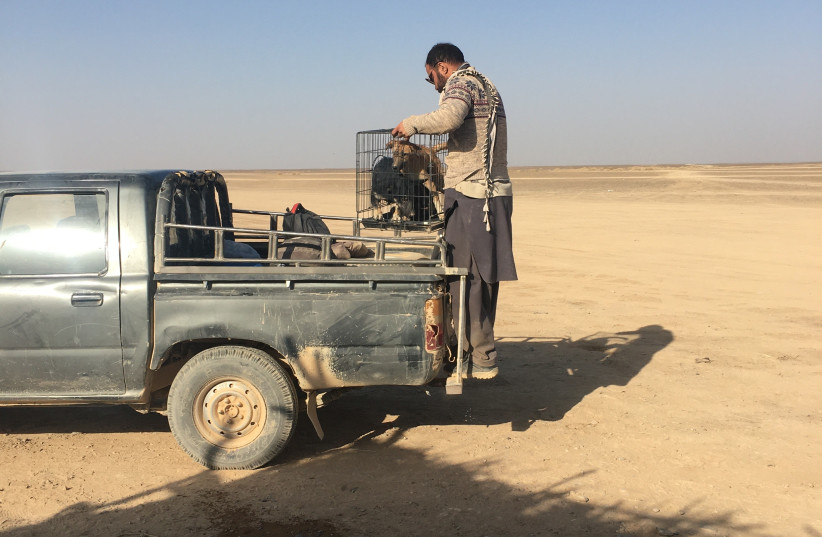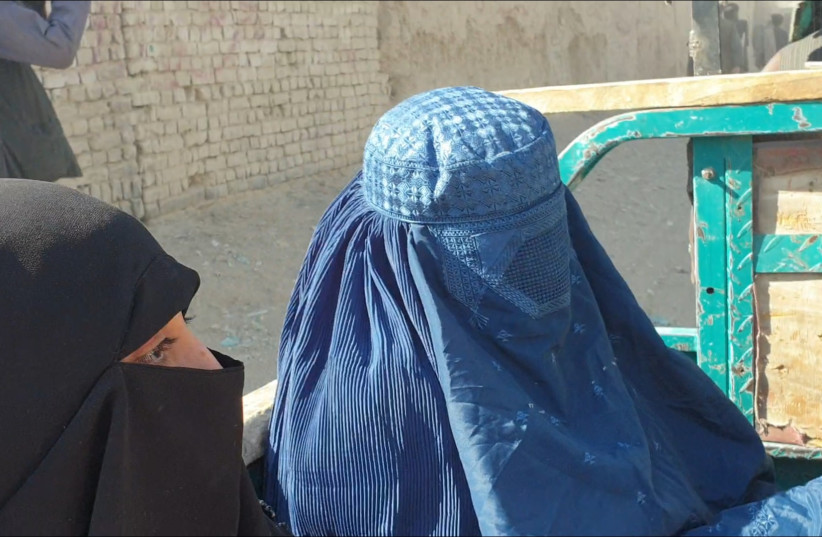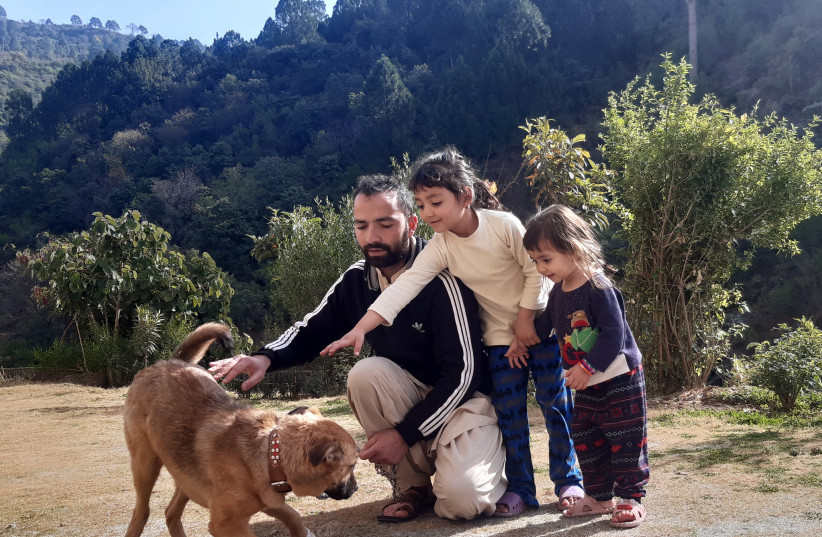The past couple of years have been pretty rough for many of us. Lockdowns, loss of income and emotional wear and tear are only some of the pandemic shock waves that have rippled over us – if not swamped us – to some degree or other.
But imagine being in actual corporeal danger of death. Imagine never knowing when there may be a thud at the door and your home then stormed by mercenary gunmen with killing, rape and plunder on their mind.
That was the chilling fate faced by many Afghanis and temporary resident foreigners, in the wake of the withdrawal by American, British and other coalition troops last summer. The removal of the international military forces took place while violence escalated, and the Taliban gradually regained control of the war-torn country. Targeted killings of prominent figures across different sectors of civil life, and particularly women, became the norm, and anyone with connections to the Western world feared for their life.
Sadly, that is still the case in Afghanistan, but, at least, 92 Afghanis and foreigners, and a bunch of domestic animals, made to it relative safety, across the border, to Pakistan, as part of Operation Magic Carpet.
Naturally, considering the fragile situation in Afghanistan, a rescue operation on such a scale entailed complex logistics. The entire venture was fraught with danger and could have been imperiled by any of numerous elements not falling into place at the right time.

As such many people and official bodies came into play in facilitating the daring escape orchestrated by a group of mainly UK-based volunteers, with the assistance of Moti Kahana, an Israeli-born American-Israeli entrepreneur and evacuation specialist who has also helped people flee Syria.
The British shakers and movers include Dominic Dyer, who shifted heaven and earth, and probably a few more celestial bodies, to persuade people in authority in Britain to use their clout to help get 60 former staff members, and their dependents, of the international arm of the animal welfare charity Mayhew London out of Kabul, where they were increasingly in mortal danger.
The charity, whose patrons include Meghan Markle, the Duchess of Sussex, was registered as an NGO in Kabul in 2016, and its team of locally trained vets treated and cared for over 20,000 dogs until the plug was pulled with the international troop withdrawal last August.
Dyer, whose diverse career path to date includes earnest work as an animal welfare campaigner, came to global note last summer when he was instrumental in getting former British Royal Marines commando Pen Farthing out of Afghanistan along with some of the animals he had provided with refuge at the Nowzad Dogs animal shelter he established in Kabul.
But Dyer still had work to do there and mounted a desperate attempt to get Mayhew staff and family members, as well as business executives, former military and security specialists and their families, out of the Kabul inferno.
It was touch and go for quite a while, but the December operation, which was largely bankrolled by Gibraltar World Trade Center owner Gregory Butcher, and supported by professionals in various locations around the world, including a British vet and a Jerusalem-based British translator who ask to remain anonymous, eventually came off.
“I had unfinished business there,” says Dyer, referencing the Mayhew group evacuation in the wake of the success with Nowzad. However, that meant more or less starting from scratch. “At the time I felt there was nothing more I could do, because you can’t find billionaires at the drop of a hat.” Extricating the Farthing group was funded by Spencer Haber, founder of the H/3 Foundation, which raises awareness of animal life around the world.
However, against all odds, Dyer pulled off the Mayhew breakout, with more than a little help from a multitude of friends. Despite his doubts about getting a second rescue attempt off the ground in Kabul, things started to develop.
“I didn’t make any commitments. I thought it was going to be really hard to go back to get them [Mayhew staff and others] out,” he recalls. “I said I know they want to come out. I know they feel let down by the [Mayhew] charity because they’re not doing anything for them. But, for us to get them out, we’re going to have to raise a quarter of a million pounds or so, and find a specialist to get them out, and we have to get them into Pakistan, and that’s not an easy thing to do.”
BUT WE’RE getting ahead of ourselves a little here. Dyer was not on board from the off. The initiative was sparked by a fortunate confluence between the aforementioned British vet and the British translator. For our purposes we’ll call them Margaret and Charlotte.

“An old school friend of mine is a vet. She was posting about Nowzad,” Charlotte explains. “As a huge animal lover I became very aware of this [plight of the charity’s staff in Kabul]. It was everywhere on social media.”
A month or so after the Pen Farthing operation reached its mostly happy conclusion, Margaret got in touch with Charlotte and asked if there was anything they could do to help the Mayhew people and animals.
“My reaction was something like why are you asking me?” Charlotte laughs. “I’m stuck here [in Jerusalem]. What can I do about it? That was my first thought.”
It certainly wasn’t Charlotte’s last contemplation of the topic. She had come across Dyer’s name in her social media exchanges, and thought he wouldn’t be a bad place to start. Margaret got straight on to that.
Then Kahana came sharply into the picture, courtesy of Dyer.
“Dominic sent us an article from the [London-based] Jewish Chronicle about how Moti had brought the last Jew out of Afghanistan,” Charlotte continues. The said gent is a certain Zebulon Simantov who, with Kahana’s aid, made it to Pakistan and thereafter to Turkey before heading for here.
Dyer picks up the story. “Moti Kahana, was clearly someone we thought could do what we needed to do. We needed, basically, someone who can move people. These, effectively, are professional people smugglers. Moti had got a quite good reputation of doing just that in Syria.”
Kahana’s impressive humanitarian portfolio also features mounting a massive campaign to get aid to Syrians fleeing the civil war there, and also getting the last Jewish family out of Aleppo.
Dyer is not without connections, and he began contacting all manner of people, around the world, he thought might be able to contribute to getting the Mayhew group out of Afghanistan, and who had a vested interest in doing so.
“There were all these groups of people I knew needed a plan,” he says. The way to go, he felt, was to try to raise funding for all concerned, in more senses than one. “We brought together representatives of the World Trade Center in Gibraltar... a lady called Asia who has relations in Afghanistan that worked with the military and needed to come out, and obviously Margaret and Charlotte.”
It is all well and good having people with a vested interest on board, and someone to go out fundraising, but you still need someone who knows the brass tacks and can get the deed done on the ground.
Kahana was the next port of call. Dyer gave him the lay of the land, and the operation wheels began picking up speed. “Moti convinced us he could do it, and he gave us an idea of what the cost would be – which was a lot of money – and then we basically left with the idea that we can raise that sort of money and get someone, Moti or someone else, to do it.”
Far easier said than done, although it generally helps to have a successful track record to go with your calling card.
Dyer relates that a couple of Indian sisters provided funding of £150,000, based on what he had achieved with the Nowzad group. The siblings were moved to offer assistance due to their own familial backdrop, and the anguish caused by the partition of India and Pakistan in 1947.
“They recognized what was happening to people in Afghanistan,” Dyer notes. “They felt they wanted to do something about it. It’s an amazing story.”
Butcher also came through and augmented the sisters’ down payment.
When the funding target was quickly reached, with the help of a Gibraltar-based lawyer, the next step was to go back to Kahana, to see how the aspirations could become a lifesaving reality. That, and sidestepping the possibility of politics muddying the operational waters, as, sadly, had been the case with the Nowzad campaign. At the time there was something of a ruckus with the British minister of defense, Ben Wallace, over a claim that the Farthing group rescue efforts had prioritized the animals, leading to “pets over people” barbs. Dyer countered that by stating that very few animals had been evacuated, and that they were put into the plane’s baggage hold area and, thus, were not taking the place of any human passengers.
IT WAS time to put the bucks into action. The funding may have been procured, but, naturally, it was far from a done deal.
“We got the money, we went to work with Moti and we started the process,” Dyer says. “It took longer than we thought. It is complex getting people out, moving them to safe houses, moving them in small groups through the border crossings, different border crossings. We, obviously, worked with people on the ground, people at the border crossings.”
That was complicated by the difficulty of obtaining official documentation. Time was of the essence.
“These people moved, to a large degree, without the legitimate paperwork. We didn’t have an opportunity to wait on passports in Kabul. Some of the people were at high risk because they had worked in the military and security areas, so they were potentially being hunted down by the Taliban regime. The women and children we just needed to get out anyway, in a rapidly deteriorating situation.”
Even those with no military ties were not safe. “Also, there were the vets, who worked with dogs which are considered [by Muslims] unclean,” Charlotte adds. “And, of course, an international Western charity which the Taliban did not like.”
All told, it took around six weeks to get all the 92, and the six pets, out of Afghanistan and to safe houses over the border with Pakistan.

It all sounds like the stuff of some 1950s spy movie, but it is an actual, very real story.
“This is the nature of this business,” Dyer states. “There is no certainty on anything. Costs are what they are. We spent a lot of money with Moti, but if we’d gone anywhere else, we would have spent the same amount of money. I know because I have other people moving through different people on the ground. They’re all charging hundreds of thousands to move people. And bribes have to be paid. This whole thing is not legit. We just needed to get them out.”
DESPITE HIS satisfaction with getting the job done and removing the Mayhew group – and pets – from imminent danger, for Dyer this is also a sad statement on the way the people in power, in democracies, go about their business.
“Ultimately, this is a story about the failure of governments. Governments have done nothing since the primarily NATO-led withdrawal. They’re all about what they do about the Taliban regime, and whether or not it should be recognized,” says Dyer with a wry smile. “They have not come up with any means of anyone getting out of that place at all.”
The next step is to get the escapees to a new home, in a new country. They are safe, for now, but there is still some way to go before they can start to rebuild their lives. ■
